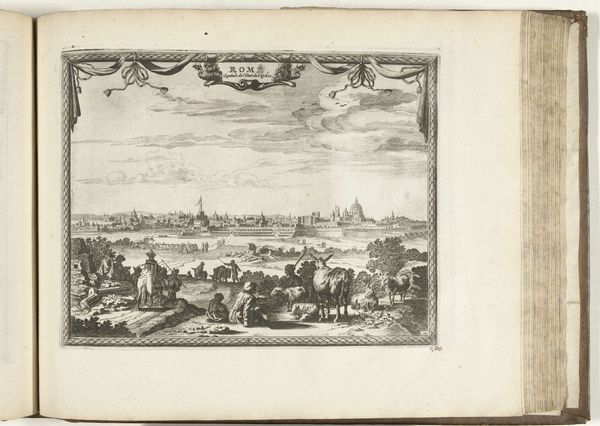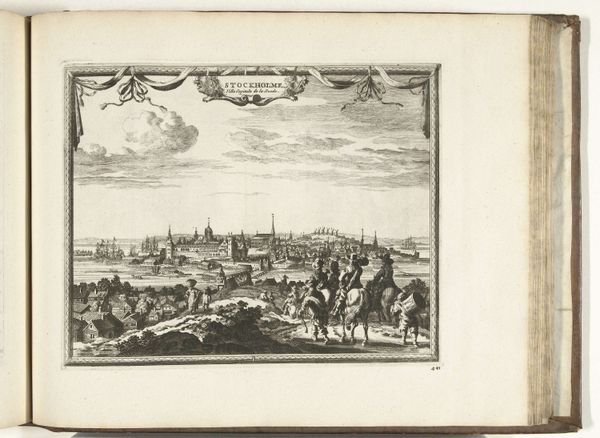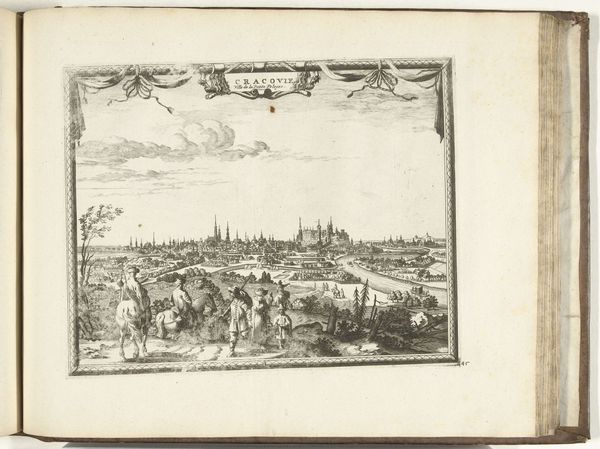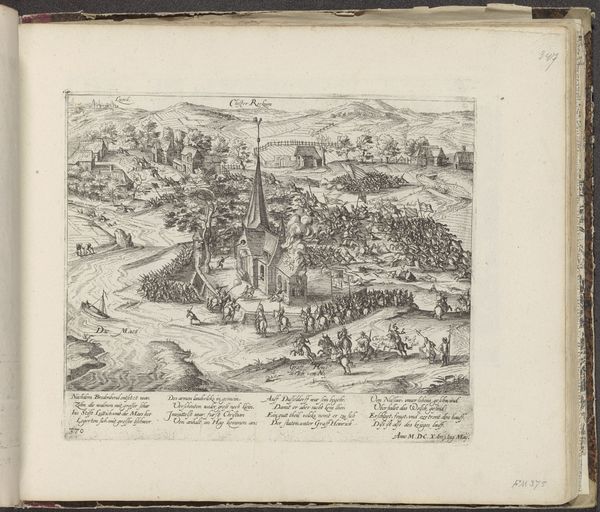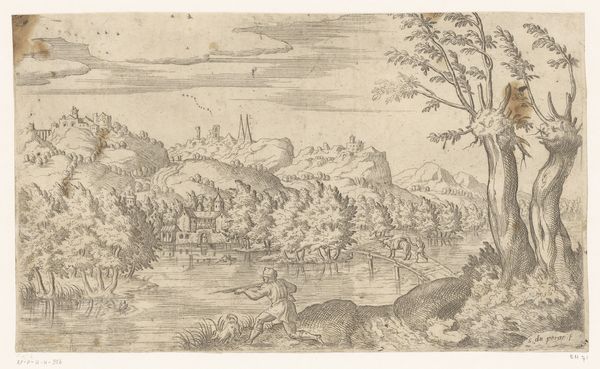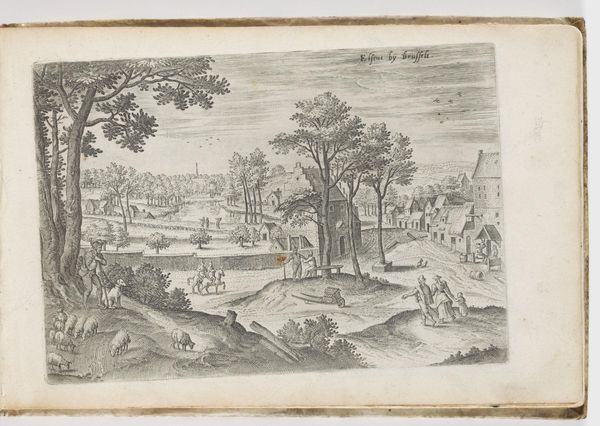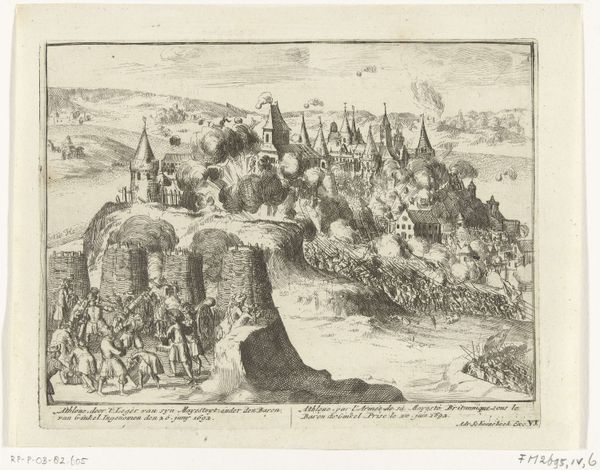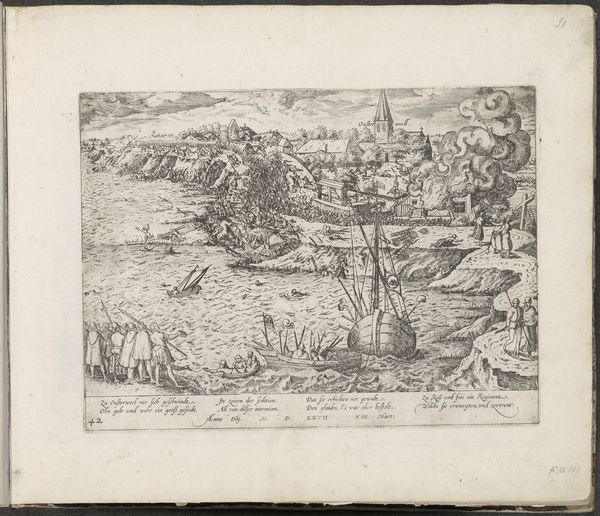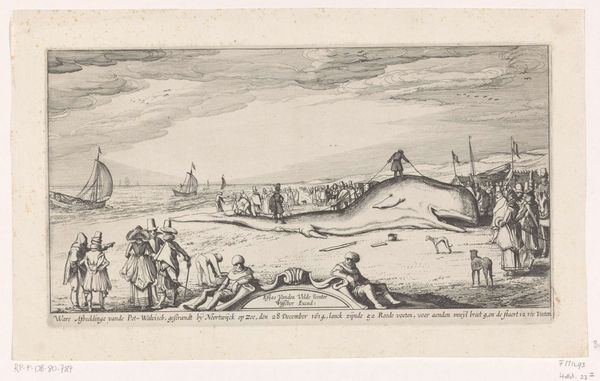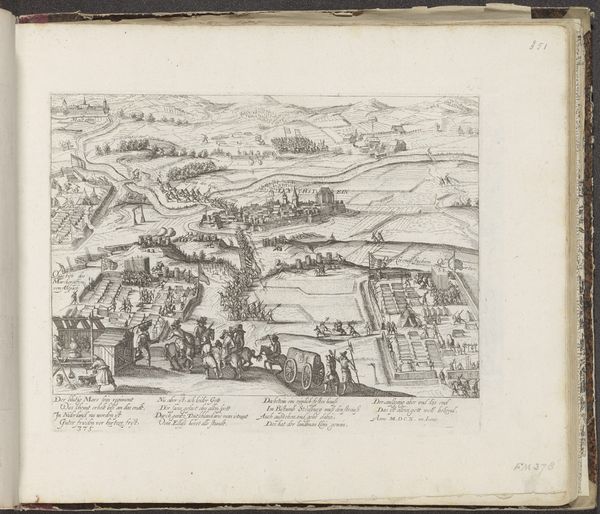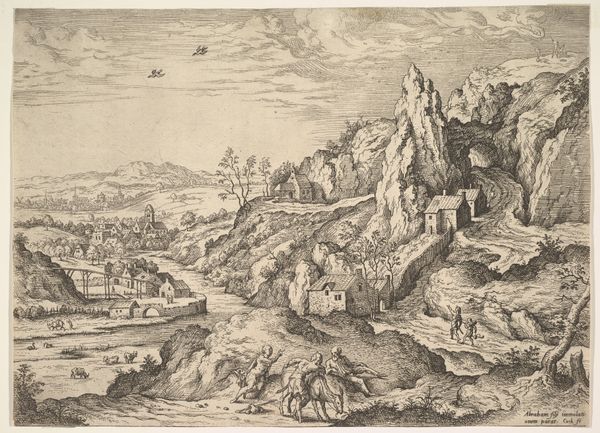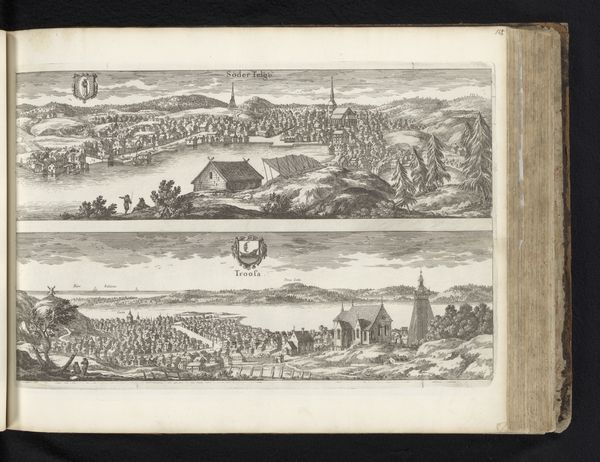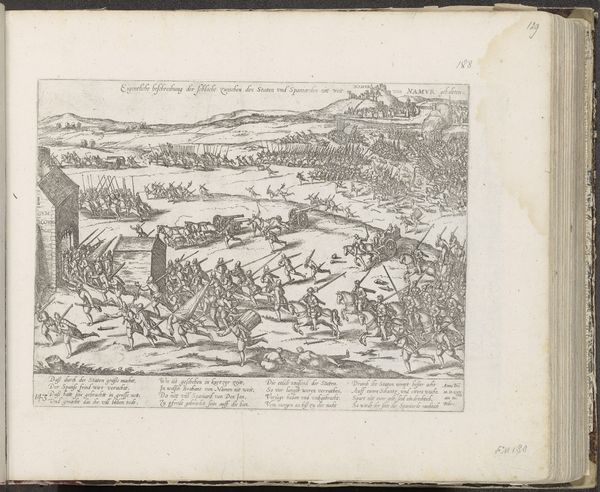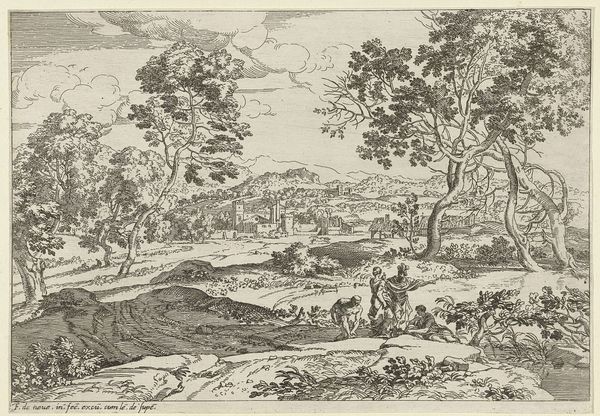
print, engraving
#
baroque
# print
#
landscape
#
cityscape
#
history-painting
#
engraving
Dimensions: height 153 mm, width 197 mm
Copyright: Rijks Museum: Open Domain
Pieter Pickaert created this print, "Koning Jacobus II belegert Londonderry, 1689," with etching, a technique that democratized image-making in the early modern period. The etching process involves coating a metal plate with a waxy, acid-resistant substance, then scratching an image into the wax. When the plate is dipped in acid, the exposed lines are eaten away, creating grooves that hold ink. This printmaking method allowed for relatively quick reproduction, contributing to the dissemination of information and propaganda. Looking closely, we see how Pickaert's lines are not just descriptive but also expressive. The density and direction of the etched lines create a sense of depth and texture, mimicking the chaos of battle. The social context is embedded in the very making of the work, reflecting the rise of print culture and its role in shaping public opinion during a time of political and religious conflict. So, next time you see a print, think not just about the image, but also about the hands that made it and the world in which it was created.
Comments
No comments
Be the first to comment and join the conversation on the ultimate creative platform.
